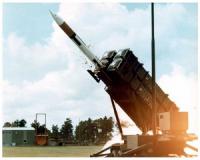-
Vietnam War: Who was right about what went wrong – and why it matters in Afghanistan
The ghosts of the Vietnam War no doubt hovered over a recently assembled conclave of President Donald Trump’s advisers as they deliberated over the deteriorating situation in Afghanistan. In the Vietnam era, as today, the United States found itself engulfed in a seemingly never-ending war with mounting costs, unclear goals, and few signs of success. In both Vietnam and Afghanistan, successive presidents faced much the same options: Withdraw, decisively escalate, or do just enough to avoid losing. Like his predecessors in both wars, Trump chose the middle path – incremental escalation with no clear exit plan (what Daniel Ellsberg, in reference to the Vietnam War, called the “stalemate machine”). How can we to explain the seeming preference of U.S. presidents for muddling through – whether in Afghanistan or, fifty years ago, in Vietnam? It may be that the logic of the stalemate machine is built into the very concept of limited war. Or that it is a predictable consequence of how presidents manage the constraints posed by American politics. In any case, the histories of U.S. military involvements in Vietnam and Afghanistan should serve as warnings to future presidents who might be tempted to again jump onto the treadmill of perpetual war.
-
-
The Invisible Threat
In 1995, during the Monday morning rush hour in the Tokyo subway, thousands of commuters inhaled toxic nerve gas left leaking from little plastic bags. Twelve people died, and thousands more were injured in the deadliest attack in Japan since the Second World War. The attack was the work of Japanese cult Aum Shinrikyo. The cult members, many of them students of science, were unsuccessful in launching a true biological attack. They were clumsy and unfocused and the tools too complex to pull off with ease. But those efforts were in the mid-1990s, and the tools for creating bioattacks have become more accessible. The Trump administration, however, is threatening to cut the funding for science needed to defend against such attacks.
-
-
Germany’s newly elected populist, far-right AfD: We will fight an “invasion of foreigners”

Leaders of the populist, nationalist AfD party, which entered the Bundestag for the first time after Sunday federal election, have pledged to fight an “invasion of foreigners” with its new MPs. Alexander Gauland, speaking in Berlin the morning after the election results came in, said his party would “uncompromisingly address” immigration, an issue the party has campaigned on since late 2015. “One million people – foreigners – being brought into this country are taking away a piece of this country and we as AfD don’t want that,” Gauland told a press conference late Sunday. “We say we don’t want to lose Germany to an invasion of foreigners from a different culture. Very simple.”
-
-
Anwar al-Awlaki’s sermons, lectures still accessible on YouTube

Anwar al-Awlaki, the U.S.-born leader of external operations for al-Qaeda in the Arabian Peninsula (AQAP), was targeted and killed by a U.S. drone strike on 30 September 2011. Yet, six years later, Awlaki continues to radicalize and inspire Westerners to terror, due to the ongoing presence and availability of his lectures online, including on YouTube. As of 30 August 2017, a search for Anwar al-Awlaki on YouTube yielded more than 70,000 results, including his most incendiary lectures.
-
-
There is almost no research on what distinguishes potential terrorists: Study
A recent analysis of the existing research on factors associated with an individual’s risk for engaging in terrorist activity highlights how little we know about these factors and the need for additional research in this area. “It’s important to have a better understanding of what distinguishes potential terrorists from individuals who pose little or no risk of becoming terrorists, whether we’re talking about Middle Eastern terrorist organizations or domestic terrorists in the United States,” says one of the study’s authors.
-
-
Will North Korea sell its nuclear technology?
Earlier this month CIA Director Mike Pompeo suggested “the North Koreans have a long history of being proliferators and sharing their knowledge, their technology, their capacities around the world.” My research has shown that North Korea is more than willing to breach sanctions to earn cash. Over the years North Korea has earned millions of dollars from the export of arms and missiles, and its involvement in other illicit activities such as smuggling drugs, endangered wildlife products and counterfeit goods. Still, there are only a handful of cases that suggest these illicit networks have been turned to export nuclear technology or materials to other states.
-
-
Breaking nuclear deal could bring hacking onslaught from Iran
If the Trump administration discarded the nuclear deal with Iran, Tehran could retaliate quickly – and inflict considerable damage – by unleashing its increasingly aggressive Iranian hacker army. Cyber-experts who track Tehran’s hackers warn that the attacks might target U.S. power plants, hospitals, airports, and other components of the country’s critical infrastructure. Iran’s current hacking against Western targets is limited almost entirely to commercial espionage and dissident surveillance, but Teheran could quickly redirect its efforts in the event of a rupture of the nuclear pact.
-
-
Election systems of 21 states targeted by Russian government hackers ahead of 2016 election: DHS
More revelations about the scope of the Russian government’s cyber-campaign on behalf of Donald Trump in the November 2016 presidential election came to light Friday afternoon, when DHS officials called election officials in twenty-one states to inform them that their states’ election systems had been targeted by Russian government hackers trying to influence the U.S. presidential election. Among the states whose election systems were targeted by Russian government operatives: Alabama, Arizona, Colorado, Connecticut, Illinois, Iowa, Maryland, Minnesota, Ohio, Oklahoma, Pennsylvania, Virginia, Washington, and Wisconsin.
-
-
The dangers of weaponized narratives, and how to respond to them
Criticism of Facebook began last week after a news report said the social network enabled advertisers to seek out self-described anti-Semites and, revealed this week, published Russian-bought divisive political ads. The company responded by saying that it would restrict how advertisers targeted their audiences and actively work with the U.S. government on its Russian-interference investigations. Google also came under fire at the same time after news that it allowed the sale of ads tied to racist and bigoted keywords. Google responded by claiming it would work harder to halt offensive ads. Weaponized narrative is the new global battle space, one expert said: “America and other Western democracies — and indeed the very Enlightenment — are under attack.”
-
-
Countering misinformation and correcting “fake news”
It is no use simply telling people they have their facts wrong. To be more effective at correcting misinformation in news accounts and intentionally misleading “fake news,” you need to provide a detailed counter-message with new information—and get your audience to help develop a new narrative. A new study, the first conducted with this collection of debunking data, finds that a detailed counter-message is better at persuading people to change their minds than merely labeling misinformation as wrong. But even after a detailed debunking, misinformation still can be hard to eliminate, the study finds.
-
-
Soft target, hard problem: Keeping surface transportation secure
Maintaining security on the U.S. surface transportation systems takes significant resources and manpower, both which tend to be in short supply. What if there were a way to detect potential threats in bags or on persons from the moment they entered the subway? What if there was a way to know the path individuals take as they move through the system, and to relay that information to transit police in real-time?
-
-
The Madman Theory of North Korea
By the fall of 1969, President Richard Nixon had become increasingly frustrated with the refusal of North Vietnam to engage in meaningful negotiations with the United States. He believed that the Soviet Union was the only country able to persuade the North Vietnamese leadership to be forthcoming – but how do you get the Kremlin to apply pressure on North Vietnam? Nixon’s idea: To convince Leonid Brezhnev that Nixon was a madman, capable of irrational action. Has President Donald Trump revived the Madman Theory in order to deal with North Korea’s nukes?
-
-
Israel shot down Iranian-supplied Hezbollah drone in border area

Israel has shot down what an Iranian-supplied Hezbollah drone as it was about to cross the Syrian border into Israel. Analysts note that Hezbollah launched the drone only hours before Prime Minister Benjamin Netanyahu is to address the UN General Assembly. In his speech he is expected to highlight the destabilizing consequences of Iran’s growing influence in the Middle East. “We have seen a significant recent rise in [Hezbollah’s] drone capability,” an Israeli military source said.
-
-
Argentinian prosecutor to review mounting forensic evidence that proves Nisman was murdered

An Argentinian prosecutor will assess the findings of a group of forensic analysts who discovered more evidence indicating that Argentinian prosecutor Alberto Nisman was murdered. Nisman, who investigated the ties between Iran and the July 1994 bombing of a Jewish community center in Buenos Aires, as well as a cover up by the previous Argentine government of Iran’s role in the attack, was found dead with a bullet wound to the head in January 2015. His death came hours before he was scheduled to appear before a closed session of the Argentinian Congress.
-
-
The security of fitness trackers could – and should – be improved

The security of wearable fitness trackers could be improved to better protect users’ personal data, a new study suggests. Vulnerabilities in the devices – which track heart rate, steps taken and calories burned – could threaten the privacy and security of the data they record, scientists say.
-
More headlines
The long view
Factories First: Winning the Drone War Before It Starts
Wars are won by factories before they are won on the battlefield,Martin C. Feldmann writes, noting that the United States lacks the manufacturing depth for the coming drone age. Rectifying this situation “will take far more than procurement tweaks,” Feldmann writes. “It demands a national-level, wartime-scale industrial mobilization.”
No Nation Is an Island: The Dangers of Modern U.S. Isolationism
The resurgence of isolationist sentiment in American politics is understandable but misguided. While the desire to refocus on domestic renewal is justified, retreating from the world will not bring the security, prosperity, or sovereignty that its proponents promise. On the contrary, it invites instability, diminishes U.S. influence, and erodes the democratic order the U.S. helped forge.
Fragmented by Design: USAID’s Dismantling and the Future of American Foreign Aid
The Trump administration launched an aggressive restructuring of U.S. foreign aid, effectively dismantling the United States Agency for International Development (USAID). The humanitarian and geopolitical fallout of the demise of USAID includes shuttered clinics, destroyed food aid, and China’s growing influence in the global south. This new era of American soft power will determine how, and whether, the U.S. continues to lead in global development.
Water Wars: A Historic Agreement Between Mexico and US Is Ramping Up Border Tension
As climate change drives rising temperatures and changes in rainfall, Mexico and the US are in the middle of a conflict over water, putting an additional strain on their relationship. Partly due to constant droughts, Mexico has struggled to maintain its water deliveries for much of the last 25 years, deliveries to which it is obligated by a 1944 water-sharing agreement between the two countries.
How Disastrous Was the Trump-Putin Meeting?
In Alaska, Trump got played by Putin. Therefore, Steven Pifer writes, the European leaders and Zelensky have to “diplomatically offer suggestions to walk Trump back from a position that he does not appear to understand would be bad for Ukraine, bad for Europe, and bad for American interests. And they have to do so without setting off an explosion that could disrupt U.S.-Ukrainian and U.S.-European relations—all to the delight of Putin and the Kremlin.”
How Male Grievance Fuels Radicalization and Extremist Violence
Social extremism is evolving in reach and form. While traditional racial supremacy ideologies remain, contemporary movements are now often fueled by something more personal and emotionally resonant: male grievance.
